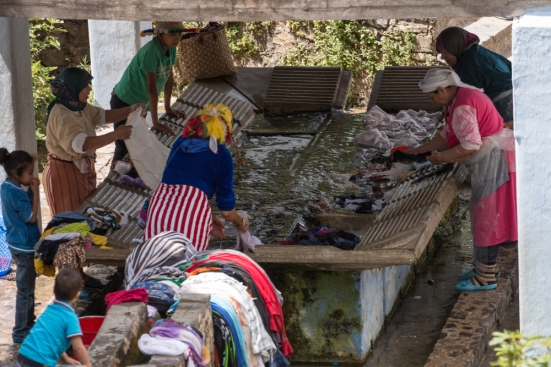This blog post is written by Lesha Witmer, Women for Water Partnership (WfWP) – it is part 2 of an on-going conversation that will be followed up during a one-day seminar “Understanding the Gender Dimension of Water and Waste” on 27 August at World Water Week in Stockholm, Sweden. The seminar is co-convened by Stockholm International Water Institute (SIWI), GWP, WaterAid, WfWP and SaciWATERS. In addition, the issue will be debated on August 28, during the event “Is wastewater a She? Linking SDG 6.3 (wastewater) and SDG 5 (gender)”.

For the first time ever, with the adoption especially of SDG Target 6.3 ( “by 2030, …, halving the proportion of untreated wastewater and substantially increasing recycling and safe reuse globally”) water quality issues such as waste water (treatment and re-use of used water) has come to the attention of a broader public. Wastewater is not on top of the list when people talk about gender issues and water. But is wastewater gender neutral (as some key players seem to think)?
Women are more affected by the lack of wastewater treatment and responsible management than men. This ranges through all dimensions of sustainable development, both in the developing and developed world.
Women for a start are far more in contact with food and direct contact with feaces (child-care; health-care personally, domestically and professionally). The risk of contamination, when sanitation is not separated from human contact (and even more so if hand-washing facilities, soap, are missing) is very high.
In a lot of big cities around the world waste collection by the local government is missing; most of the time it is local women’s organisations that take the initiative to do so with very little or no support (or even respect). However, their work prevents even more contamination of (ground) water and contamination risks.
Cleaning and emptying toilets is most of the time (unpaid) women’s work. Although some interesting initiatives have been set-up, transferring this into structured, paid jobs in cities in the developing world, then the other “old” issue turns up: they get paid less for this work than their male counterparts (if any).
One of the problems/concerns is the still growing amount of pesticides, hormones, medication, and chemicals in waste water. This can have very nasty longer term effect on the health of people especially women (both older (osteoporosis) and pregnant (blue babies, miscarriages)). This may become an even bigger issue when considering reuse of used water e.g. for agricultural purposes, exposing again mainly women working in agricultural (70%) and affecting food security (when not done expertly).
UNESCO-WWAP and the gender-taskforce proposed the following indicators:
- Percentage of households connected to sewerage or alternative means of water treatment (6.3);
- Percentages reported health-incidents/ impacts disaggregated by sex;
- Percentages of M/F in charge of waste and waste-water management.
It would be interesting to see if, when data on the proposed indicator are collected, there is a gender gap again – most likely so. Common knowledge indicates that especially female-headed households are not connected.
Waste (water) a gender and women’s issue? Absolutely. Needed: More sex-disaggregated data also on this issue, research on solutions for treatment, more women working in the sector, more respect and payment for the women who take over. Come and join us and discuss more ideas, solutions.
This blog is also published on the WfWP website.



